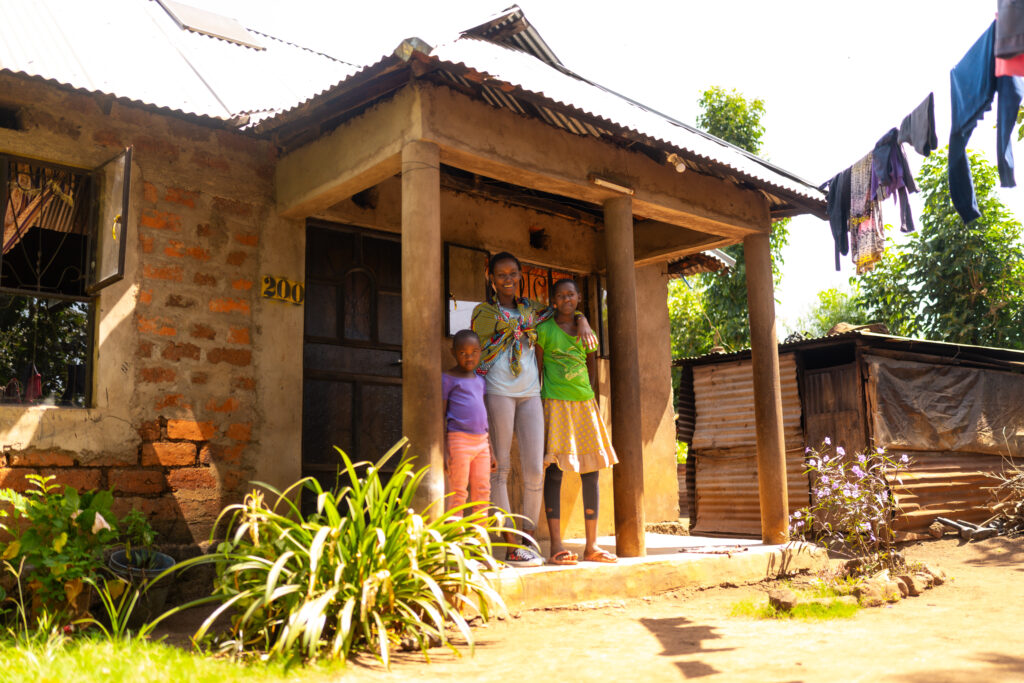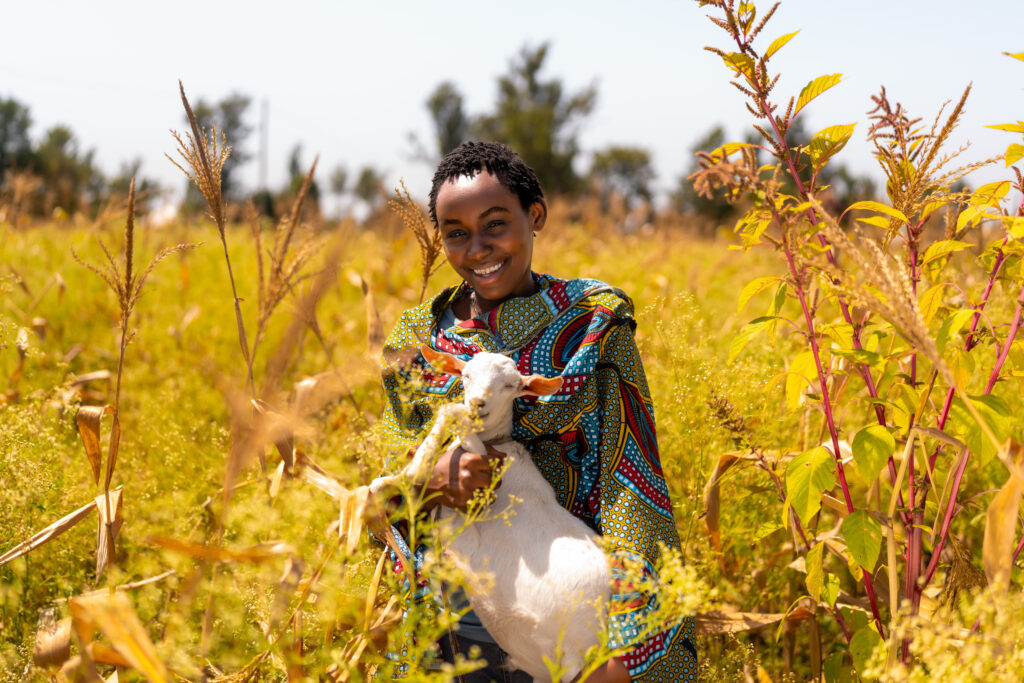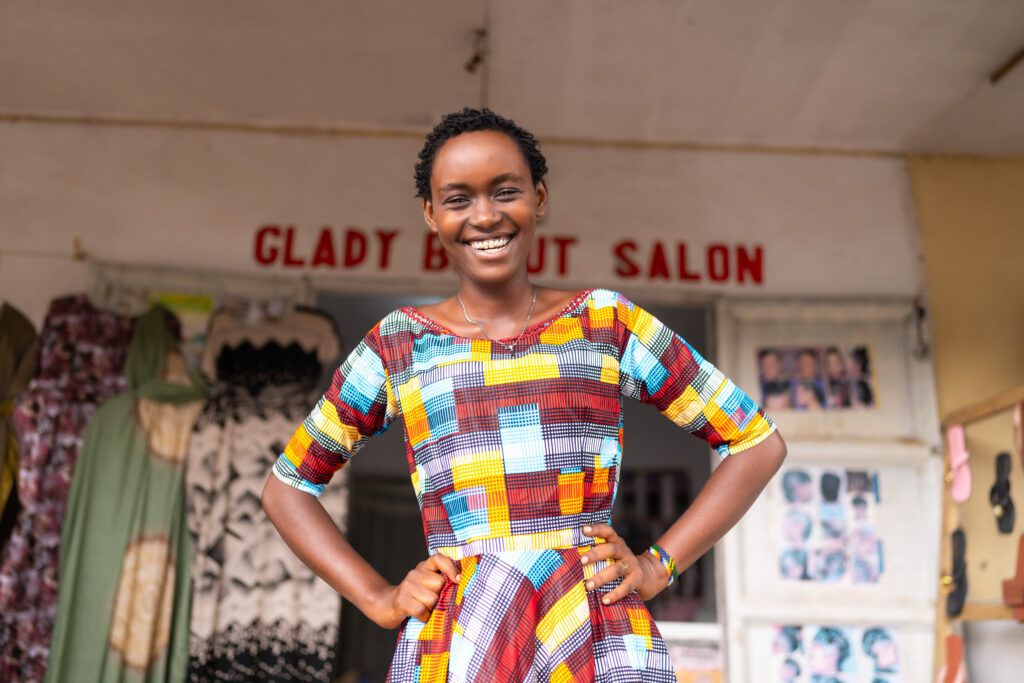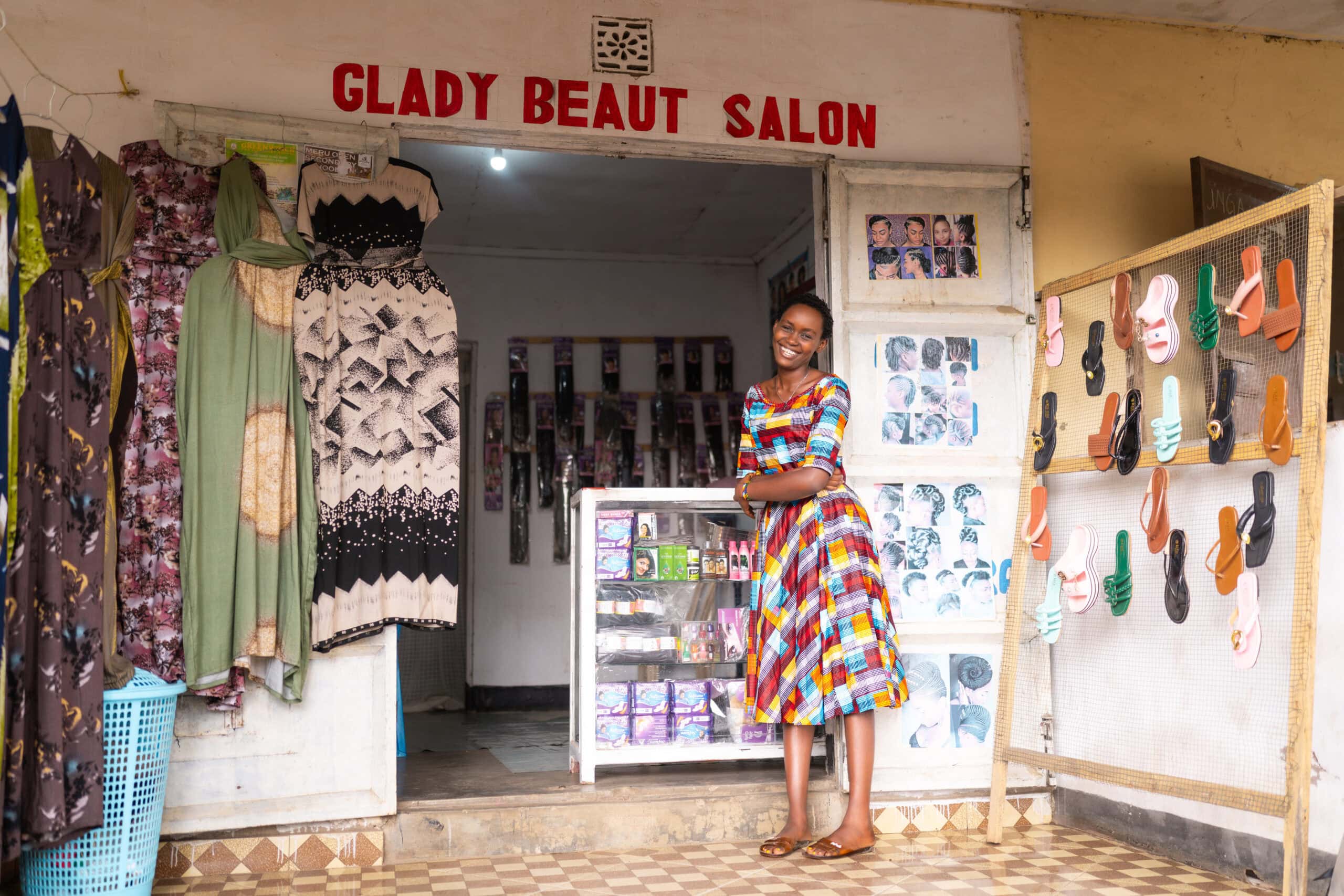As a child, Gladness dreamed of being a hairdresser. When she wasn’t in school, she often hung around the salons in her neighborhood, observing the shop owners. Sometimes, they’d even let her help with small, easy chores, which always seemed big and important to Gladness.
Gladness’s mother worked in the fields with other women in the community—one of the few jobs available to an uneducated Maasai woman in rural Tanzania. Gladness’s father had long struggled with alcoholism and wasn’t around.
Life turned upside down when Gladness’s mother passed away unexpectedly. Gladness hadn’t even known she was sick, and then, all at once, she was gone. Gladness, who was a teenager at the time, dropped out of school to care for her three younger siblings. The family didn’t have relatives nearby.
Gladness assumed the only job available was farming, so she took all she was offered. She couldn’t earn enough to pay for food and keep her siblings in school, so they dropped out, too.
The family’s house, which had been in a fragile state before their mother’s death, slowly became decrepit. No floor, no windows, no roof. Gladness and her siblings patched up holes with cardboard, plastic tarps, and sheets of paper.
Gladness had a friend in town, who had joined Zoe Empowers a year prior. As Gladness battled to survive the challenges of extreme poverty, she saw Salome, who was also caring for her siblings, grow a successful salon business. Salome gave Gladness hope and inspired her to do the same.
So, in October of 2021, when Zoe launched more empowerment groups in the community, Gladness went to the recruitment meeting. She was accepted and got her first start-up kit three months later. Gladness partnered with another group member to open a salon. The two young women split rent in a high-traffic area to build up their clientele. Before long, they could each afford to move to their own space.
With her income, Gladness re-enrolled herself and her siblings in school and restored her home to a safe, habitable condition with a new roof, door and windows. She also purchased goats and chickens to rear and sell at the market.

Gladness is especially proud to own livestock in addition to running her salon because after she dropped out of school and before joining Zoe, she believed farming was her only future. Now, it’s merely a source of supplemental income.

Furthermore, as a member of the Masaai tribe, she always believed she’d have to be married as a young girl and have children. Since becoming an empowered businesswoman, Gladness now understands that she can choose her own husband.
Like Salome, Gladness has become a mentor to other girls in other local Zoe groups. When her trainees ask for advice, Gladness encourages them to believe in themselves.
“I tell them their potential is limitless,” Gladness said. “Girls especially don’t have to get married at a young age,” she added. “I tell them to stand in their position. They can do anything and succeed in it.”
Gladness’s message is important and illustrates a distinct aspect of the empowerment program: the robust Zoe network.
Current Zoe participants always have access to upper-level participants and program graduates. Newcomers get to see their struggles and challenges reflected back to them from other youth who have already overcome them, instilling hope and faith early on in their empowerment journey.
So far, Gladness has trained five young women to become hairdressers. Looking ahead, she would like to continue mentoring while expanding her salon business to include cosmetics. She will graduate from the program at the end of 2024.

